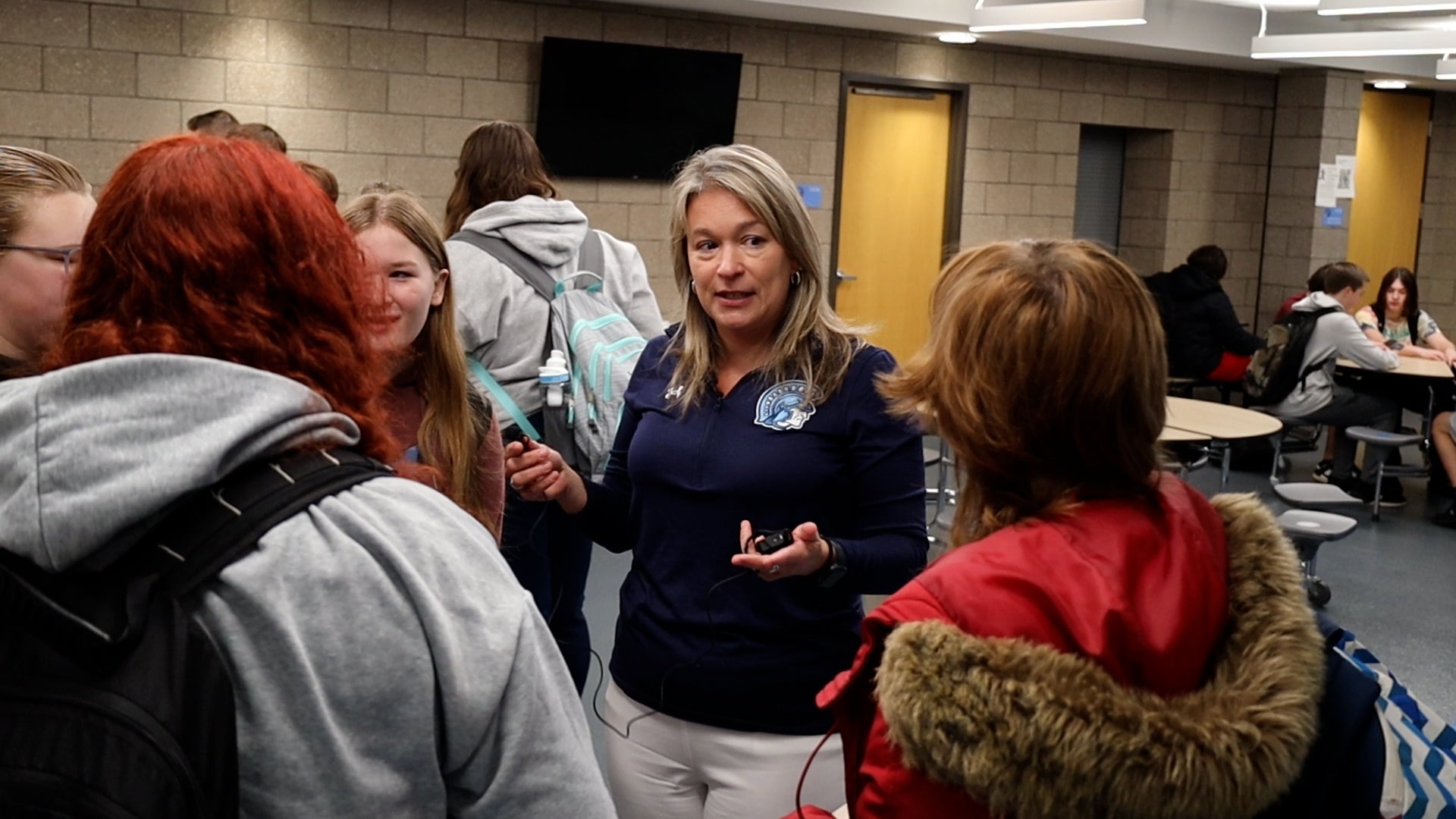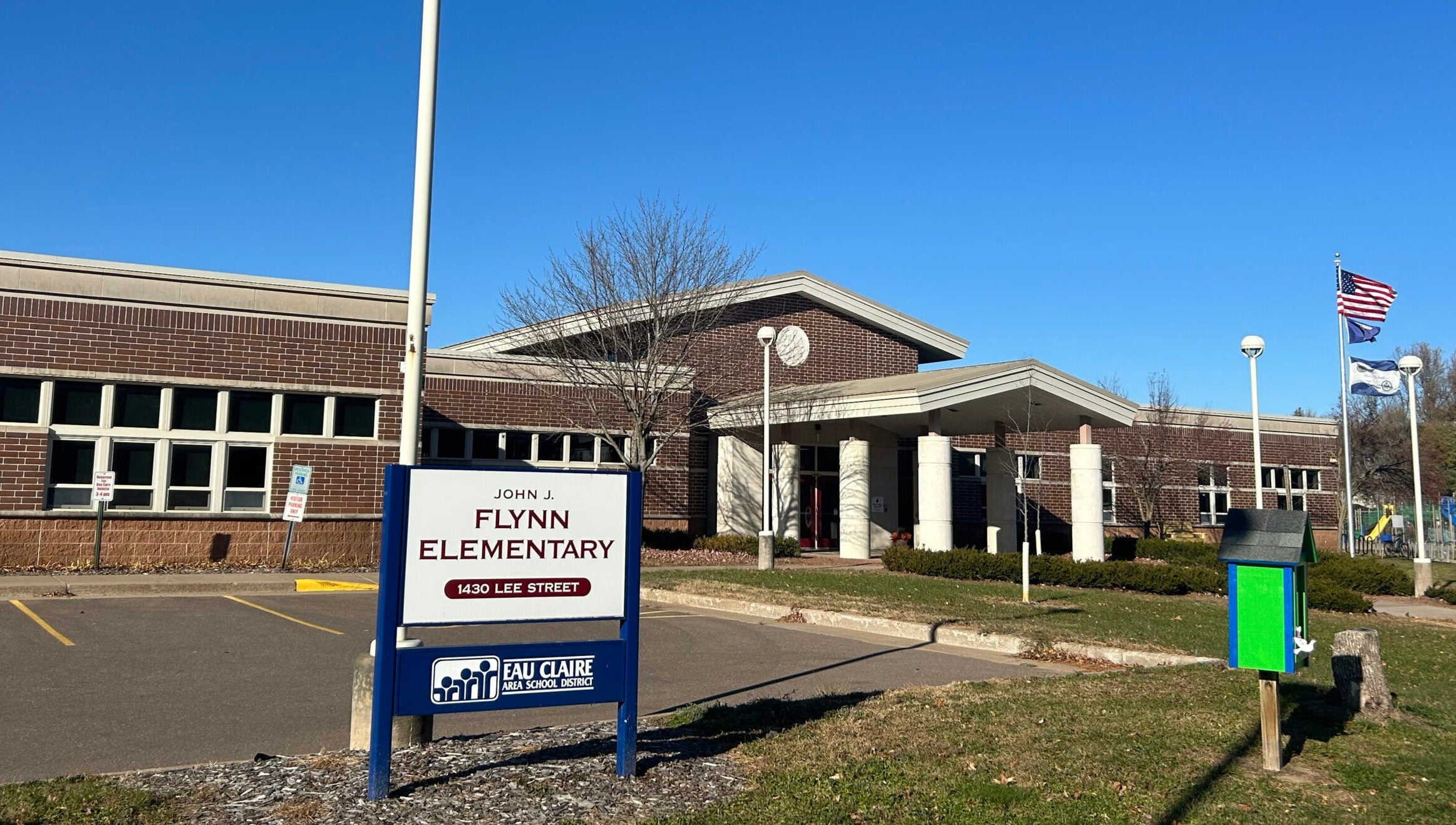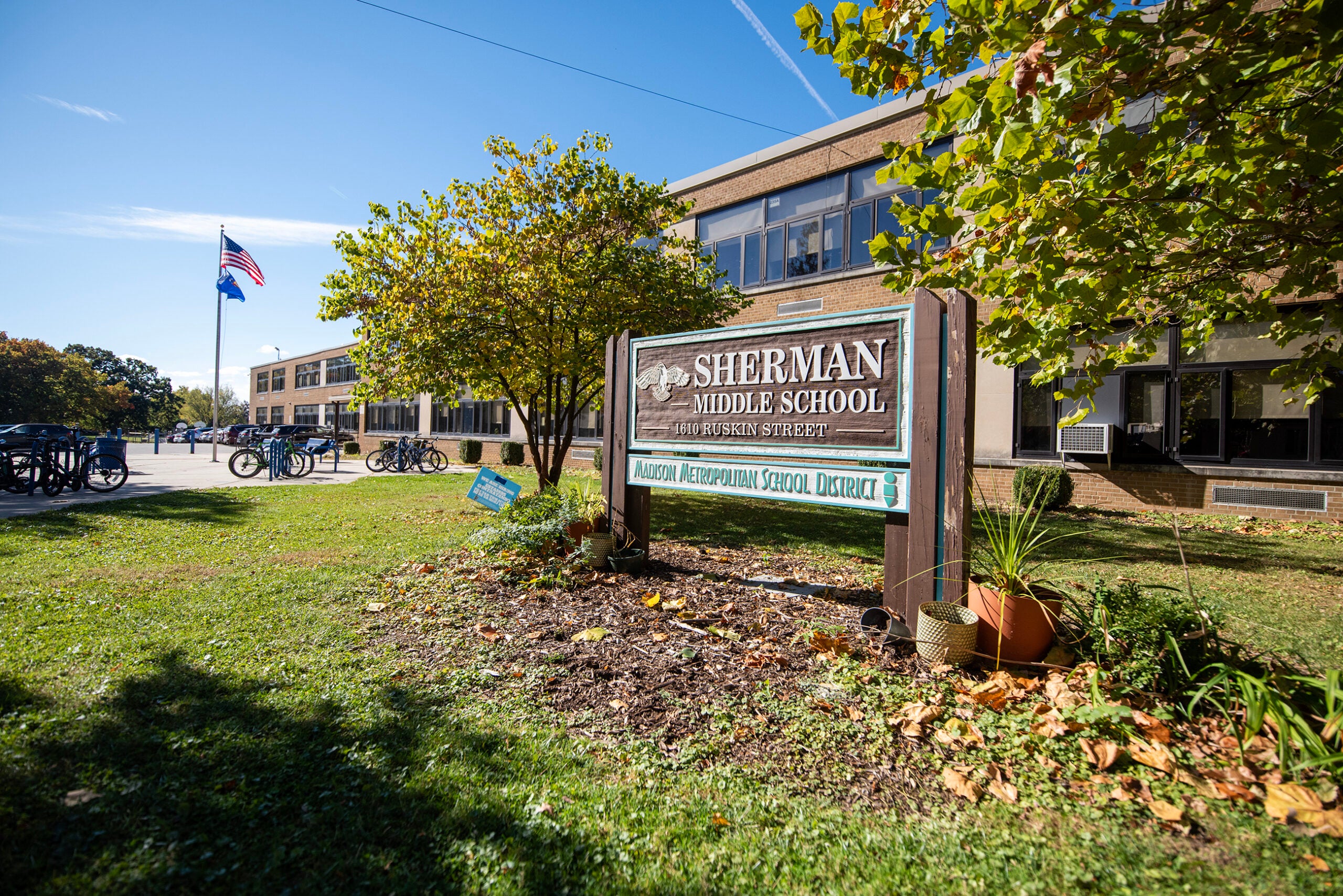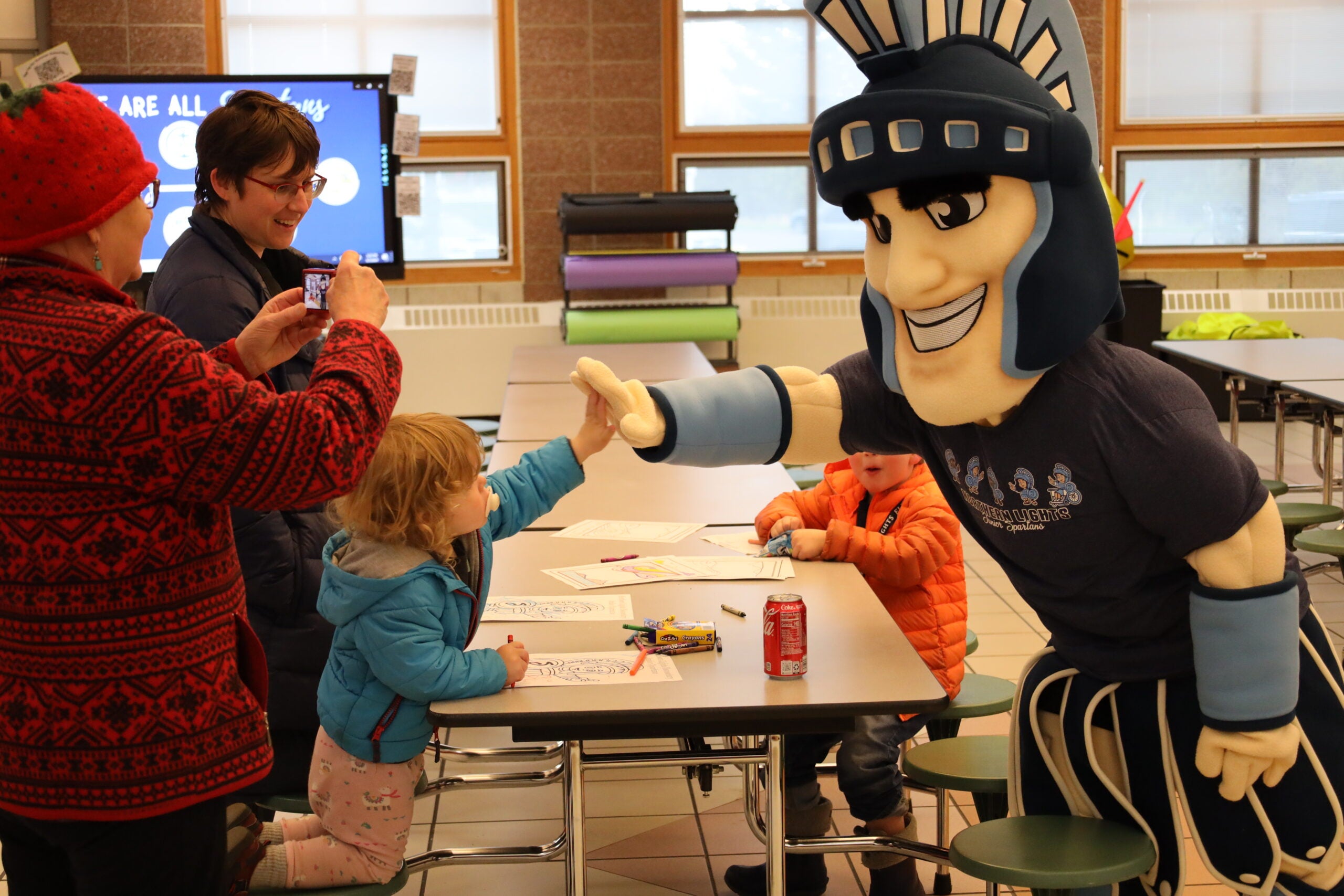Superior public schools chief Amy Starzecki has been named Superintendent of the Year by the Wisconsin Association of School District Administrators — an honor she attributes in part to an improvement in graduation rates and that she says should be shared with the district’s entire staff.
“It was a surprise,” she said of the award. “I have said many times since this award was announced last week that it’s a direct result of the staff, the principals and the administration. My job as superintendent is to create a vision, but it’s really the work of everybody in our organization that makes that vision a reality.”
Starzecki, who will be given the award at the group’s January meeting in Milwaukee, cited the graduation rate at Superior High School jumping to 98 percent today from 85 percent in 2018 when she took the job. She was previously assistant superintendent of Duluth Public Schools and before that a superintendent, principal and school psychologist at other districts in Minnesota.
News with a little more humanity
WPR’s “Wisconsin Today” newsletter keeps you connected to the state you love without feeling overwhelmed. No paywall. No agenda. No corporate filter.
The honor was announced just as Superior voters approved a referendum in last week’s election that will see property taxes rise to support several million dollars in school aid over the next five years. It also follows the closure of Lake Superior Elementary School in June.
Starzecki, who holds bachelors and doctoral degrees from the University of North Dakota, and also a master’s in school psychology from Northern Arizona University, spoke with WPR’s Robin Washington on “Morning Edition” about the honor and challenges facing the district.
This interview has been edited for clarity and brevity.
Robin Washington: What achievements in the district did the association cite specifically?
Amy Starzecki: One of the biggest accomplishments we’ve made since I came in 2018 was our graduation rate. We were in the bottom 5 percent in the state of Wisconsin. Less than 85 percent of our students were graduating from Superior High school.
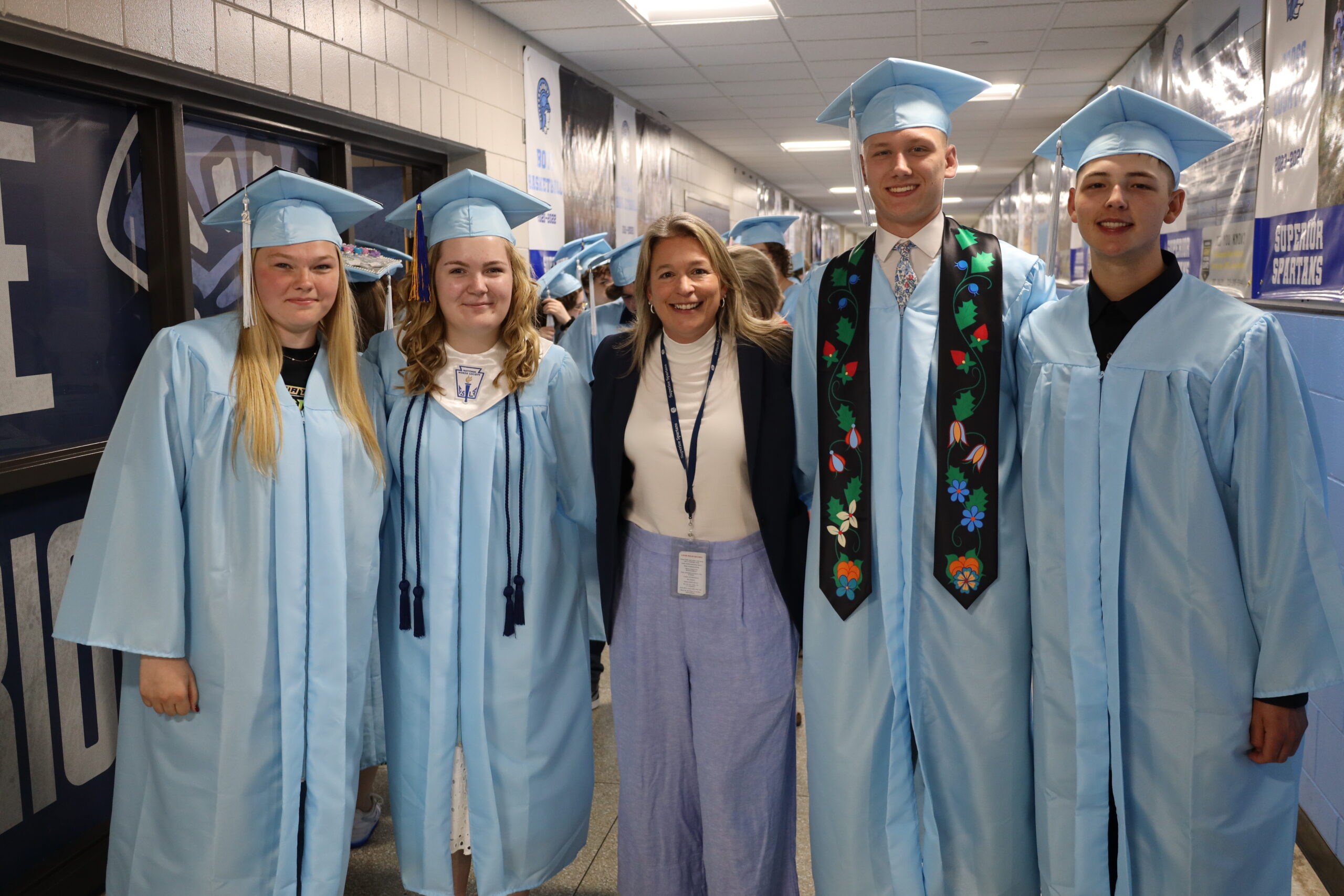
Since then, we reviewed our special education model to make sure kids were in the least restrictive environments. We implemented a program out of Minnesota called “Building Assets, Reducing Risks” that looks at building strong relationships with kids in classrooms. And we did a lot of work changing an institutional mindset to believe that all kids can achieve at high levels and all kids will graduate.
We now have about 98 percent of our students graduating from Superior High School. That’s well above the state average.
RW: Tell us about the closure of the elementary school.
AS: We looked at our enrollment projections as well as our budget projections for the last seven years. We knew we were going to face a pretty significant fiscal cliff after pandemic funding ended in September 2024. Also, as a result of the pandemic, we saw a significant decline in enrollment and we are continuing to see those declines due to birth rates.
So we put together a committee made of parents and some administrators to really look at our data and consider what it would mean for class sizes and other program implications if we didn’t consolidate our schools. It was that parent committee that made the recommendation to close one of our elementary schools. It was our smallest, with only 140 students. Now, instead of six elementary schools, we have five, and we were able to absorb the staff and the students within all of our existing schools.
RW: Last January, you received $400,000 from National Bank of Commerce for naming rights for 15 years for your sports facility, which you’ve long shared with the University of Wisconsin-Superior. But they now just had the grand opening of their own sports complex expansion.
AS: Yes. UWS has just built their new outdoor athletic complex. NBC Bank donated a significant amount to our Spartan complex to maintain their sponsorship of that facility. They also donated money to help purchase a digital scoreboard in our gymnasium where we are now able to secure advertisements and other sponsorships that generate revenue for our district.
RW: Voters just approved a property tax referendum to support the school district to the tune of several million dollars over the next five years. Why is it needed?
AS: In the last five years, we have not seen an increase in state funding that keeps up with inflationary costs. We experienced significant inflationary costs during and after the pandemic. The question we posed to taxpayers was, do you want us to continue making the significant reductions that we’ve been making? Last year, we had to cut about 60 staff positions district-wide and we closed the school. We asked voters if they wanted to contribute a small amount to be able to help maintain our class sizes and program options. We were fortunate that our community voted yes.
RW: You’ve managed to avoid the controversy of parents challenging books in school libraries, which has been an issue elsewhere in the state.
AS: We have not faced any book challenges since I’ve been here. One reason is we allow for a wide variety of choices of books when it comes to completing standards. As a result, families can help identify which books are best for their child. I think that has helped to eliminate some of that controversy, because we’re very transparent about it and there’s really no book that is required to be read in our school.
If you have an idea about something in northern Wisconsin you think we should talk about on “Morning Edition,” send it to us at northern@wpr.org.

